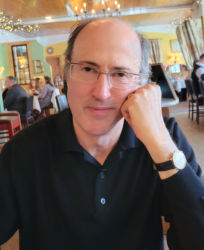Senator Herb Kohl (D-WI), chairman of the Senate Special Committee on Aging, held a hearing May 26, 2010, on the marketing and manufacturing of dietary supplements. The original intent of the hearing was to find and expose  dangerous levels of contaminants in supplements. Senator Kohl had asked the Government Accountability Office (GAO) to test supplements, which the agency did and found 37 of 40 tested supplements had heavy metal contaminants. The only problem for the Senator was contamination levels were below those that might pose a health threat and were typical of the levels found in many foods, according to both the U.S. Food and Drug Administration (FDA) and the Environmental Protection Agency. The absence of a serious contaminant health threat didn’t prevent the mainstream media from getting the reporting wrong (surprise!)
dangerous levels of contaminants in supplements. Senator Kohl had asked the Government Accountability Office (GAO) to test supplements, which the agency did and found 37 of 40 tested supplements had heavy metal contaminants. The only problem for the Senator was contamination levels were below those that might pose a health threat and were typical of the levels found in many foods, according to both the U.S. Food and Drug Administration (FDA) and the Environmental Protection Agency. The absence of a serious contaminant health threat didn’t prevent the mainstream media from getting the reporting wrong (surprise!)
Plan B
With no contaminant smoking gun, Plan B for the hearing became finding and exposing deceptive or dangerous marketing practices for dietary supplements. Here, the GAO fairly easily found numerous examples of misbranded supplements, both on-label and online, with illegal product claims for preventing, mitigating or curing diabetes, cancer and cardiovascular disease. While embarrassing for the industry, these examples were not revelatory. We already knew there are bad actors out there, and the industry has for years rightfully asserted that FDA and the Federal Trade Commission possess the authority to remove such products from the market.
But, in an undercover operation conducted by GAO for its report to the committee, agents also posed as elderly shoppers who called or visited health food stores in the Washington, D.C., area and secretly recorded conversations with store staff. By the sound of the recordings (www.gao.gov/products/GAO-10-662T?action=play), the salespeople with whom GAO spoke do not represent our highest quality retailers. But, neither was it too difficult for GAO to find several examples of irresponsible sales talk, a fact we can’t dismiss too lightly.
Say What?
In one recording, the vitamin salesperson tells a GAO agent that a particular brand of phosphatidylserine (PS) sharpens mental focus and memory and, when prompted by the agent about Alzheimer’s disease (AD), asserts that PS prevents and may slowly reverse AD. In another call, the salesperson claims to an agent that customers she has with type-1 diabetes who took garlic were able to reduce or discontinue insulin, and that she believes the product “can correct any health condition.” Another salesperson tells the GAO agent that he can stop taking his prescription drugs when he takes a fish oil supplement. Yet another answers the GAO shopper that it is safe to take ginkgo biloba while taking aspirin or Tylenol, asserting that ginkgo is “completely safe because it’s all natural. It’s an herb. This one is actually on sale—buy one, get one free.” When one GAO agent posing as a diabetic asks if it is safe to take ginseng, one quasi-knowledgeable salesperson responds, “Of course. Like I said, its sugar metabolism . . . diabetes comes from the inability to metabolize sugars so it will help.”
(If your reaction to these assertions is, “So what?” you might want to rethink your expansion plans.)
Smart Talk
As every natural products retailer knows, customers want specific, not general, information to self-treat their particular health concerns. And if you are like most retailers, you believe deeply in the efficacy of the natural products you sell and in your constitutionally protected free-speech right to inform your customers of these benefits. With such a motivated buyer and seller, it is easy for emotion to take over your entire communication. While you want to empathize with your customers because it enhances your listening and encourages their trust, you’ll serve your customers better—and protect yourself—when you temper your empathy with a few common sense boundaries.
Some of the most successful retailers I know start off each conversation with every customer with a smile and cheerful disclaimer, “You know, we don’t diagnose, cure, treat or mitigate disease.” If you’ve never done this before, it may seem unnecessarily stiff or awkward to you. But with some practice—I suggest role playing with every team member who interacts with customers—you can develop an informal, light-hearted style. Here, the “how” you say it is much more important than “what” you say. Pay attention to body language as you practice with your staff, working on hand movements, posture and head angle until you clearly and consistently communicate a relaxed attitude.
A second critical piece of your standard communication should be to advise your customers to see their doctors. Again, how you say this is much more important than what you say. My friend Barb, another very successful retailer, coaches her staff to tell customers with a smile, “Don’t take your supplements in secret,” to introduce the concept of getting professional medical advice and to lighten up this part of the conversation.
The Greater Good
The increased scrutiny of our industry is the result of our success and greater visibility in society. More than ever before, Americans are buying natural products regularly as an alternative and complementary approach to health. Rather than resent the unwanted attention, we should recognize that regulatory pressure is the new reality of our political/economic system. Whether we want to or not, because of our success, we will increasingly be forced to participate in the political process. As the saying goes in Washington, either you are at the table or you are on the menu.
Your ability to effectively communicate the benefits of natural products to your customers is and will remain one of your most powerful competitive advantages. No supermarket or vitamin chain store today knowingly risks the liability of a lawsuit from an unscripted salesperson/customer interaction that goes wrong. As the number of customers and variability in their health status increases, your best chances for long-term success lie in intelligently balancing your communications between human empathy and professional responsibility. And as a bonus, your store won’t wind up as Exhibit A in the next senate hearing. WF
Jay Jacobowitz is president and founder of Retail Insights®, a professional consulting service for natural products retailers established in 1998, and creator of Natural Insights for Well Being®, a holistic consumer marketing service designed especially for independent natural products retailers. With 33 years of wholesale and retail industry experience, Jay has assisted in developing over 900 successful natural products retail stores in the U.S. and abroad. Jay is a popular author, educator, and speaker, and is the merchandising editor of WholeFoods Magazine, for which he writes Merchandising Insights and Tip of the Month. Jay also serves the Natural Products Association in several capacities. Jay is next scheduled to speak at NPA Northwest on “Rub Me the Right Way: How to Serve Customers from Every Generation” on Thursday, September 16th. He can be reached at (800)328-0855 or via e-mail at jay@retailinsights.com.
Published in WholeFoods Magazine, July 2010 (Published online ahead of print, June 21, 2010)










